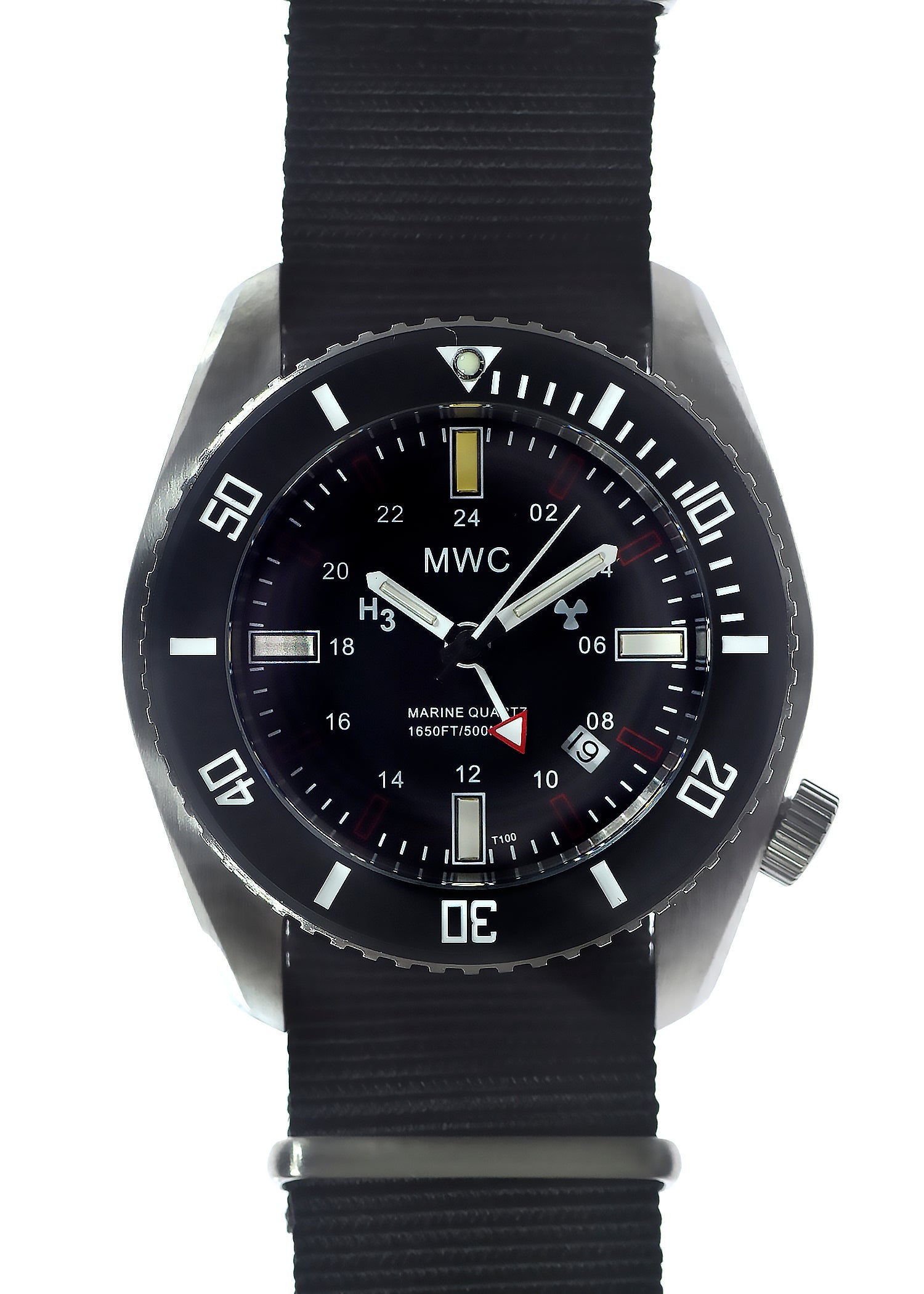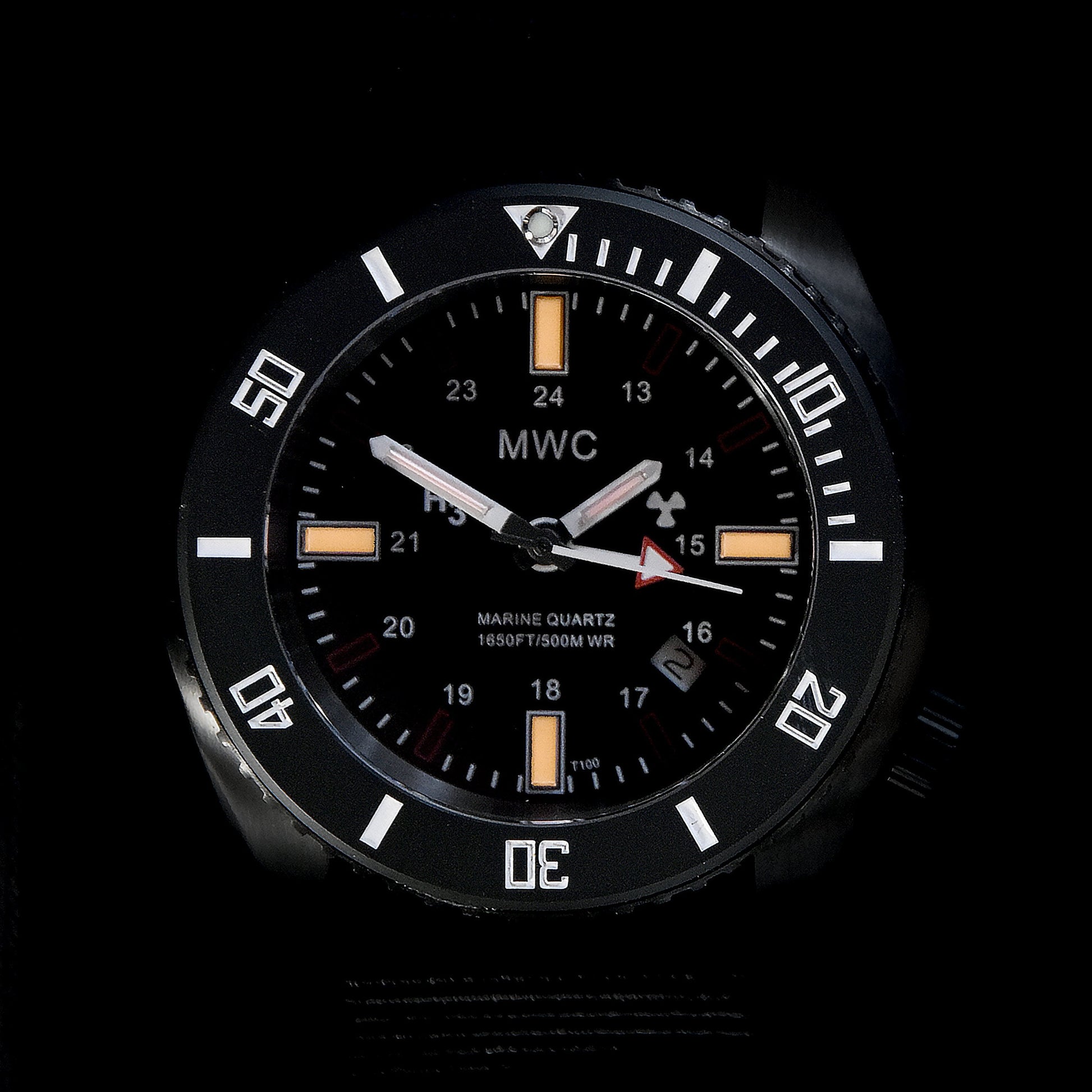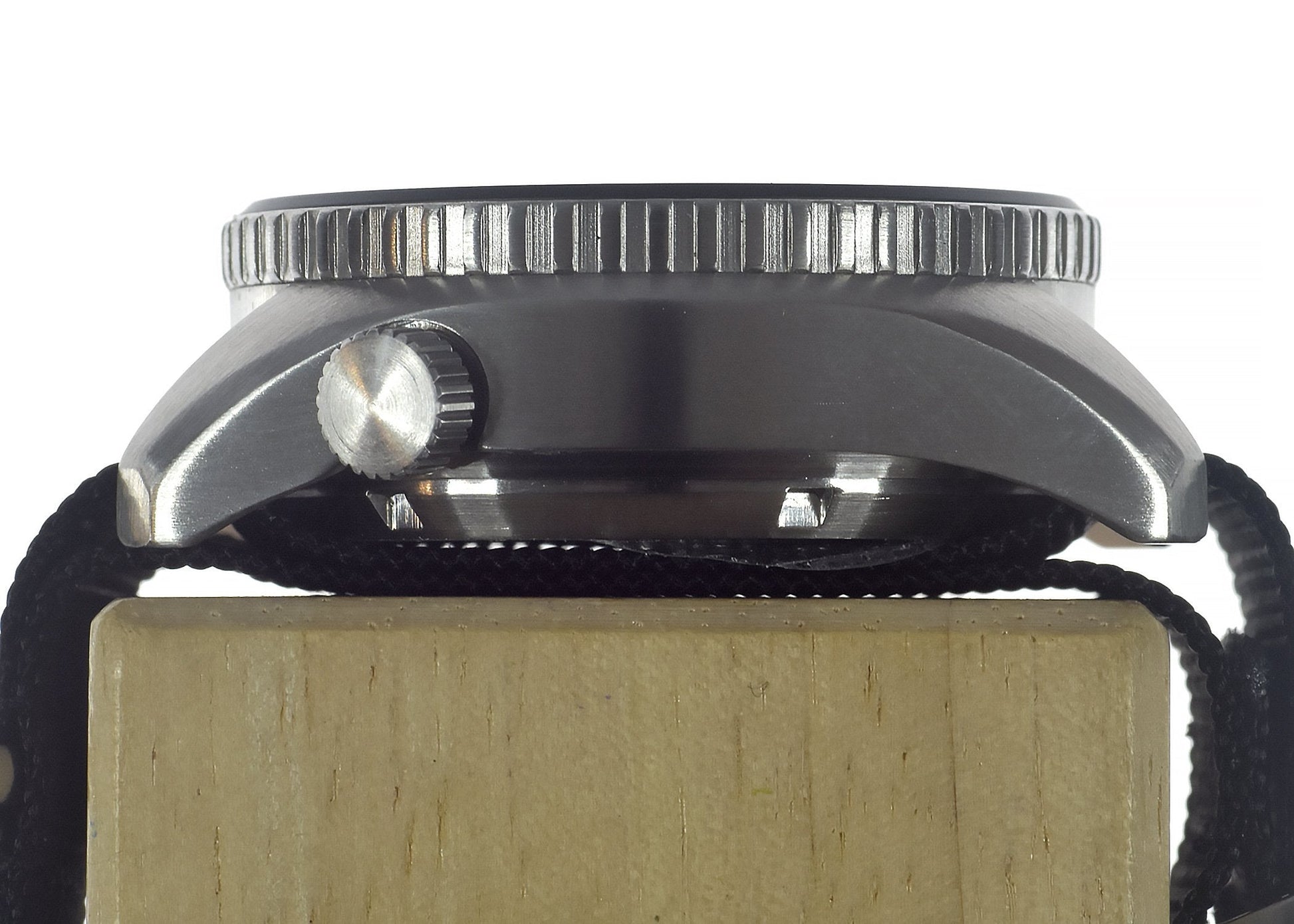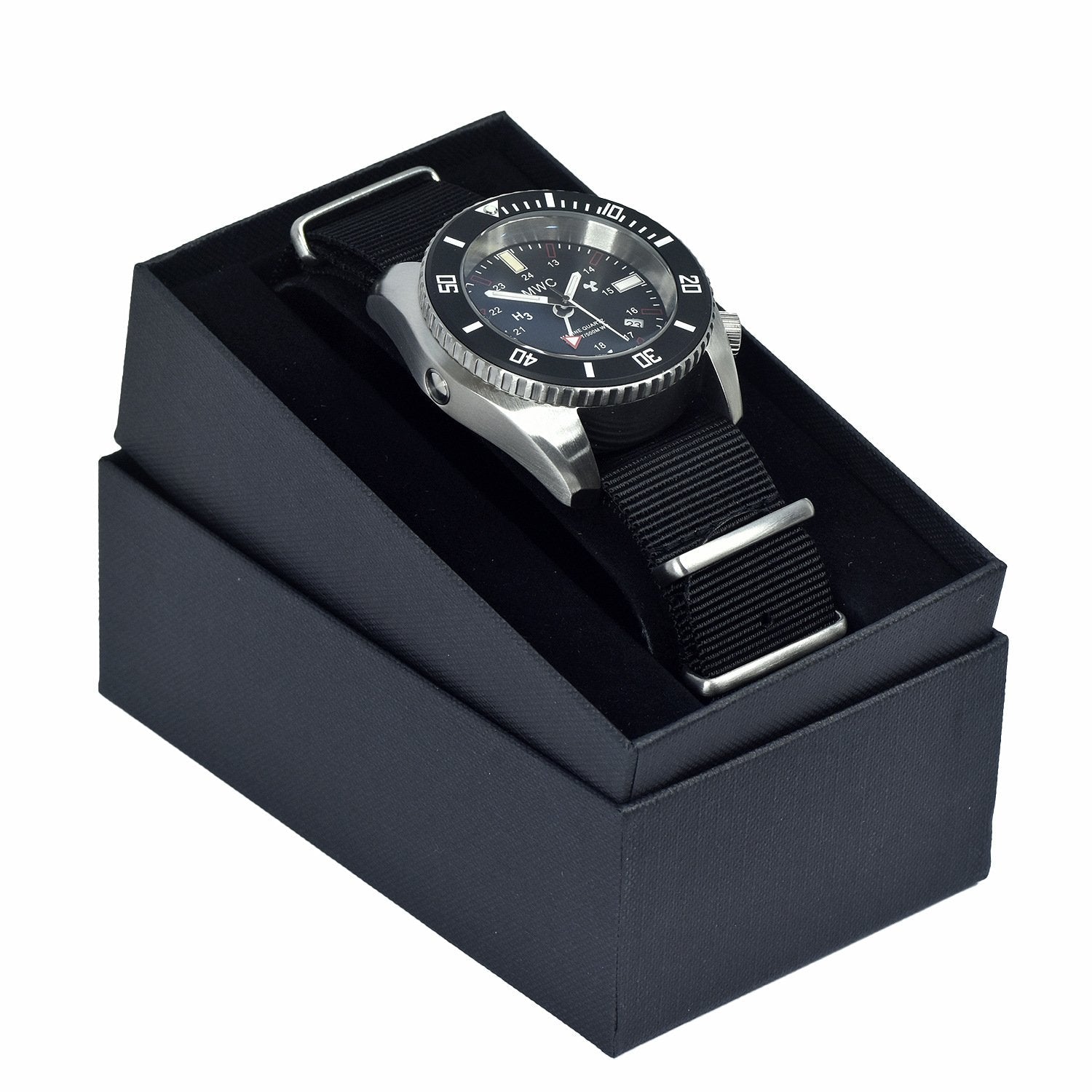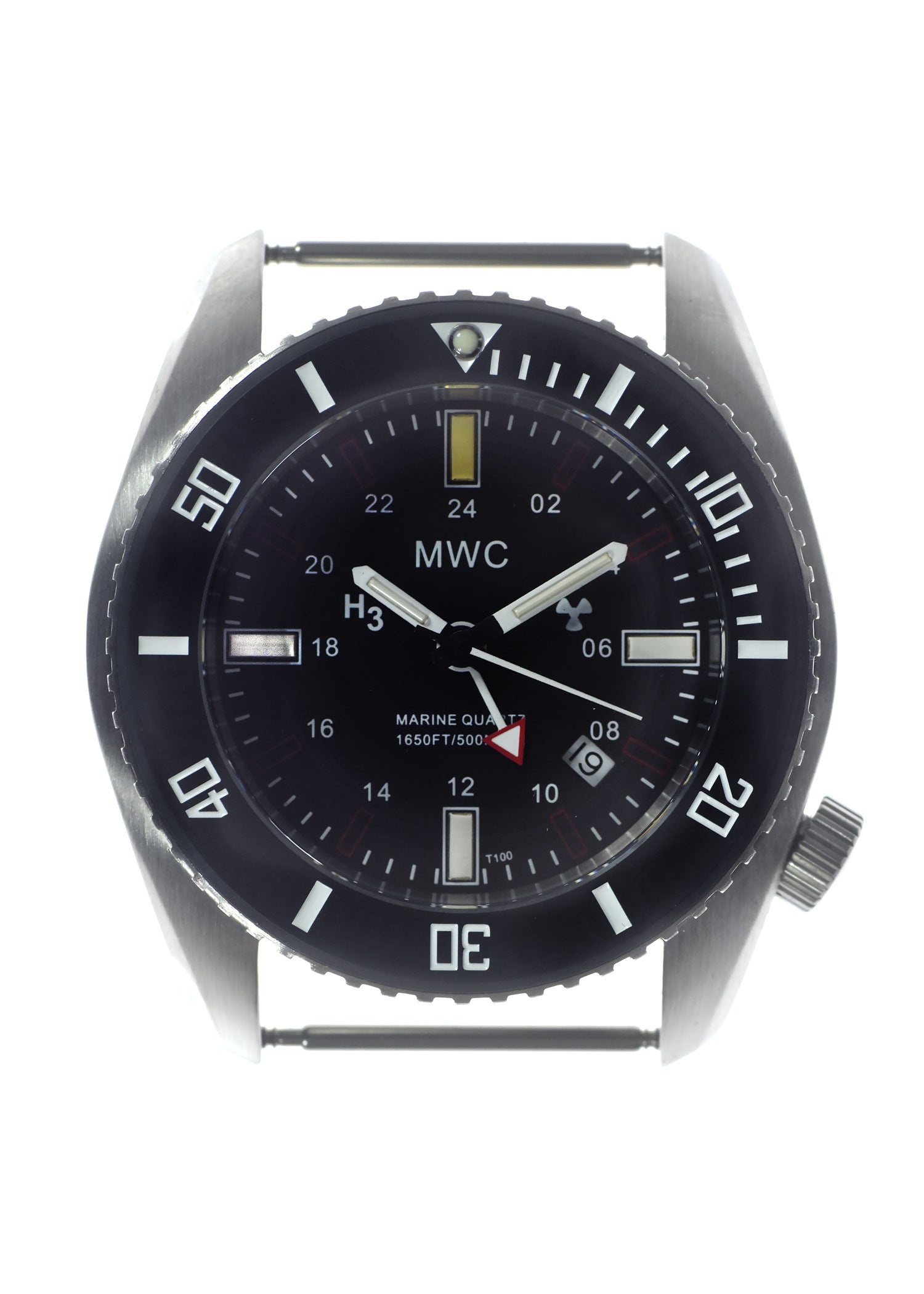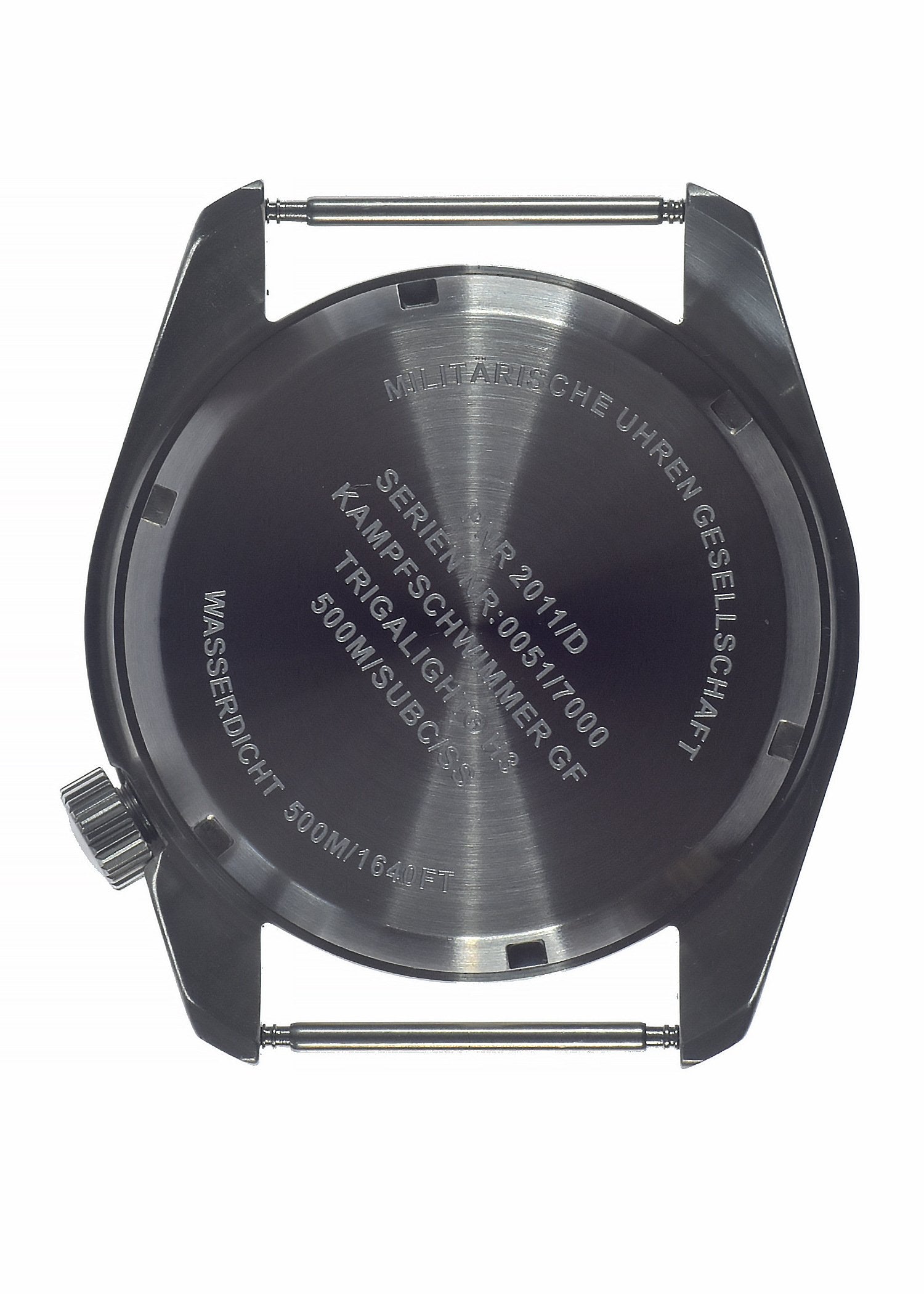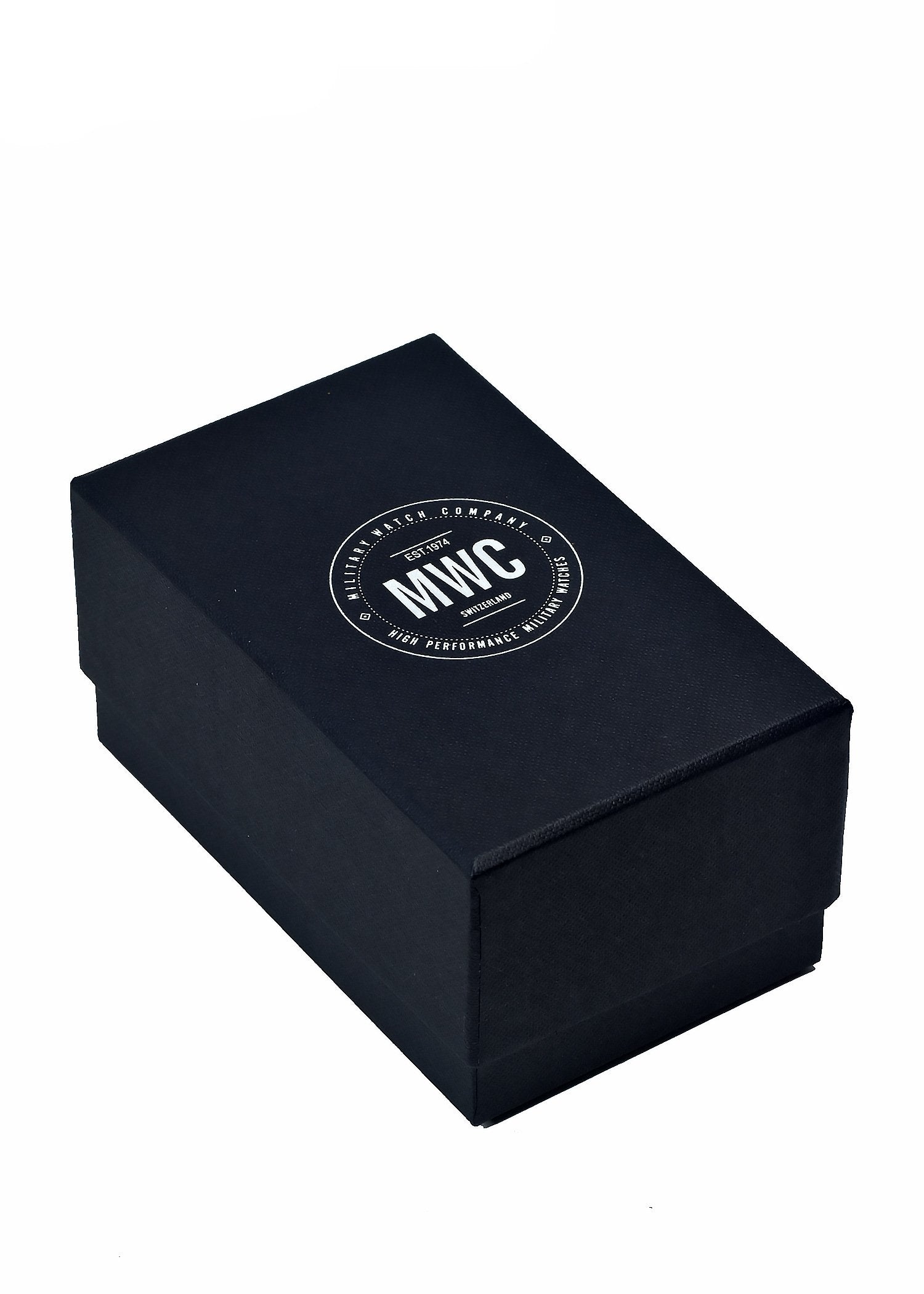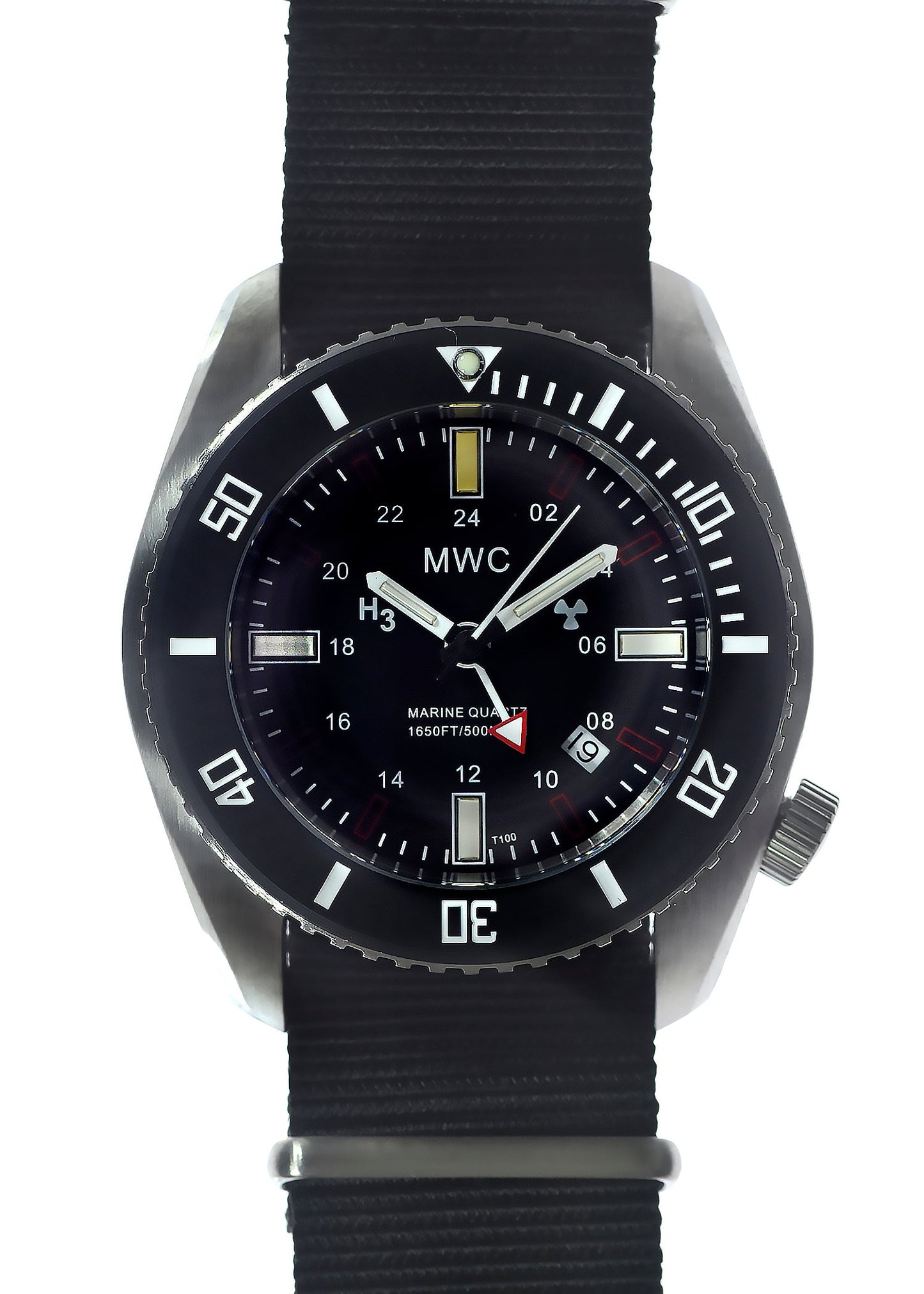
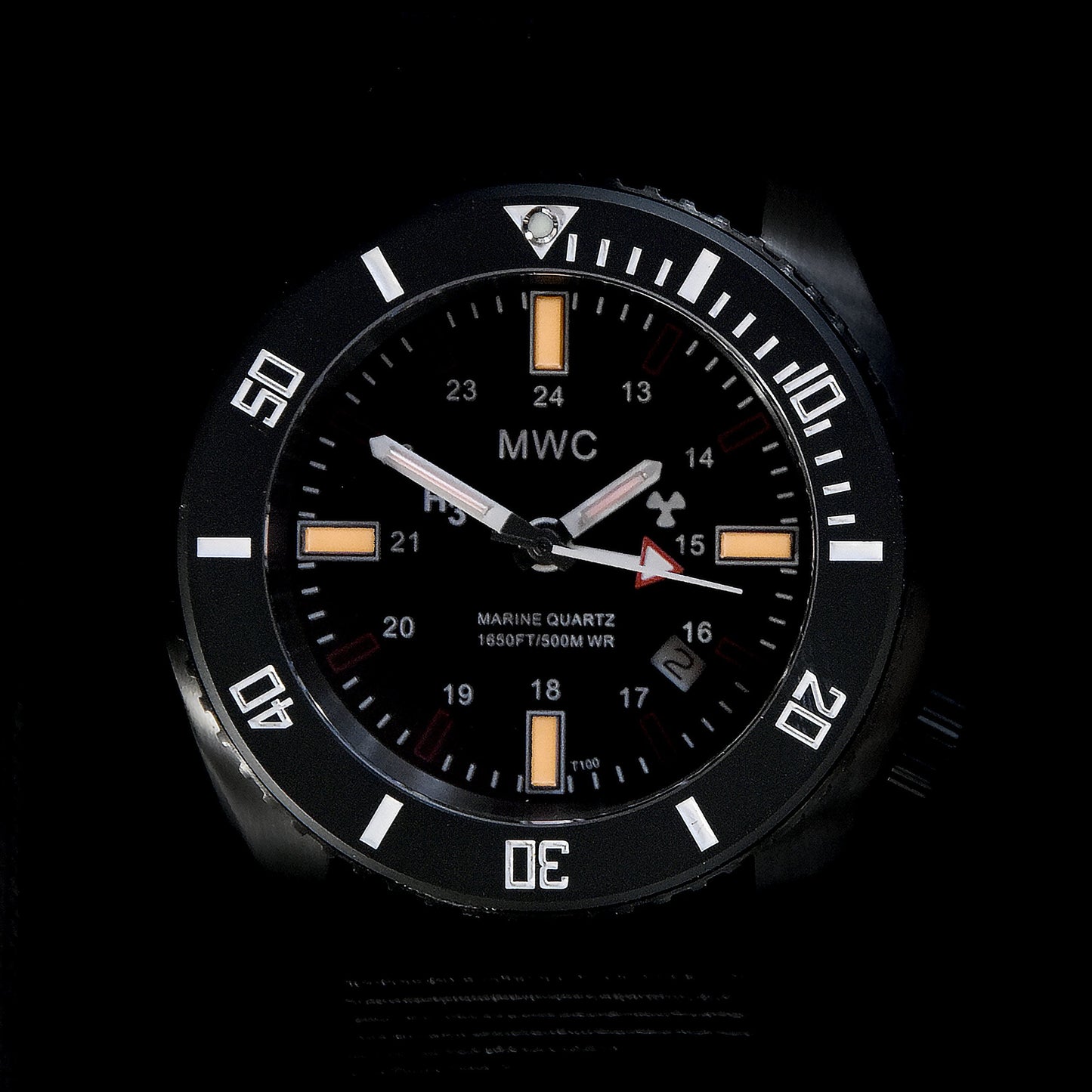
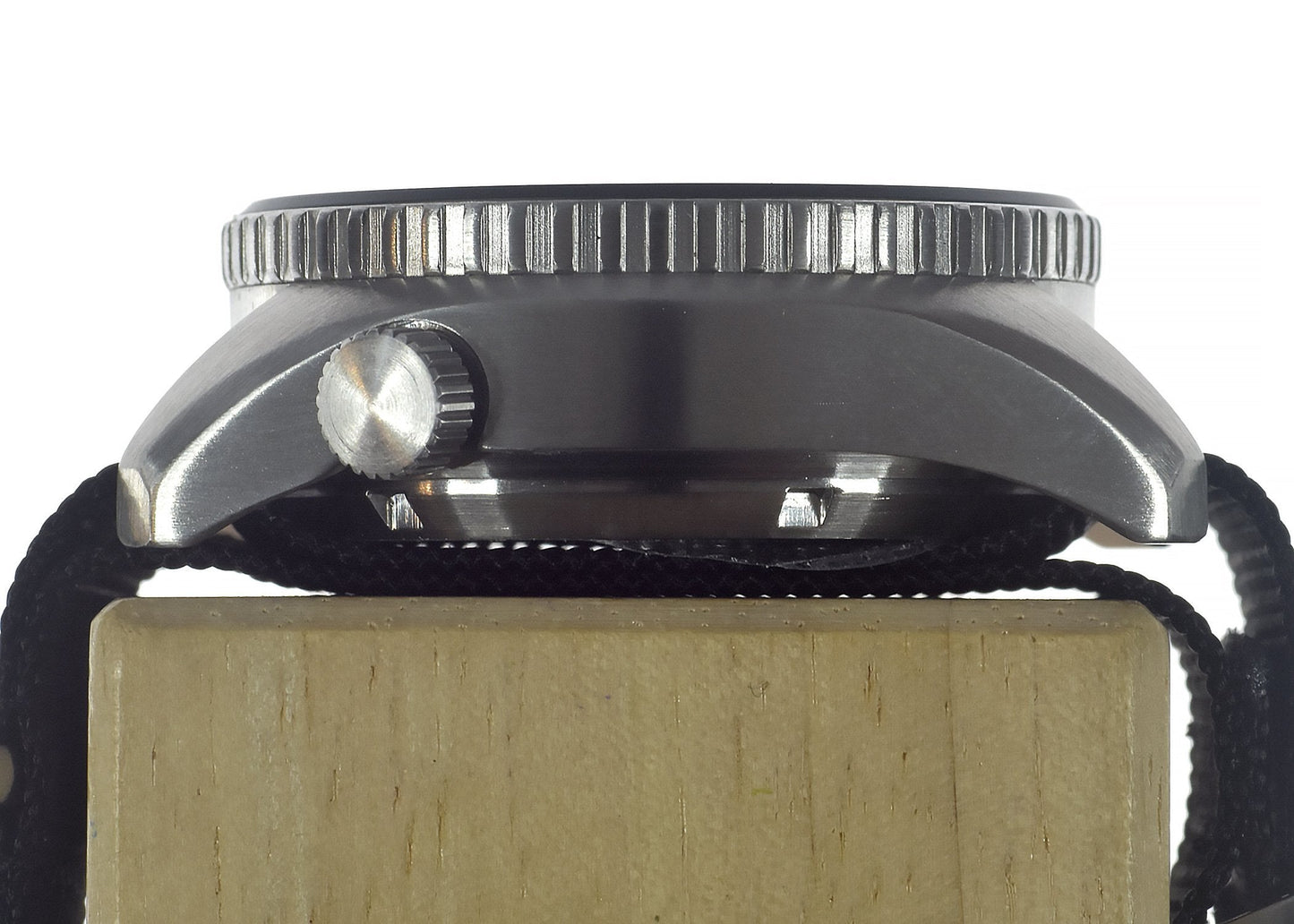
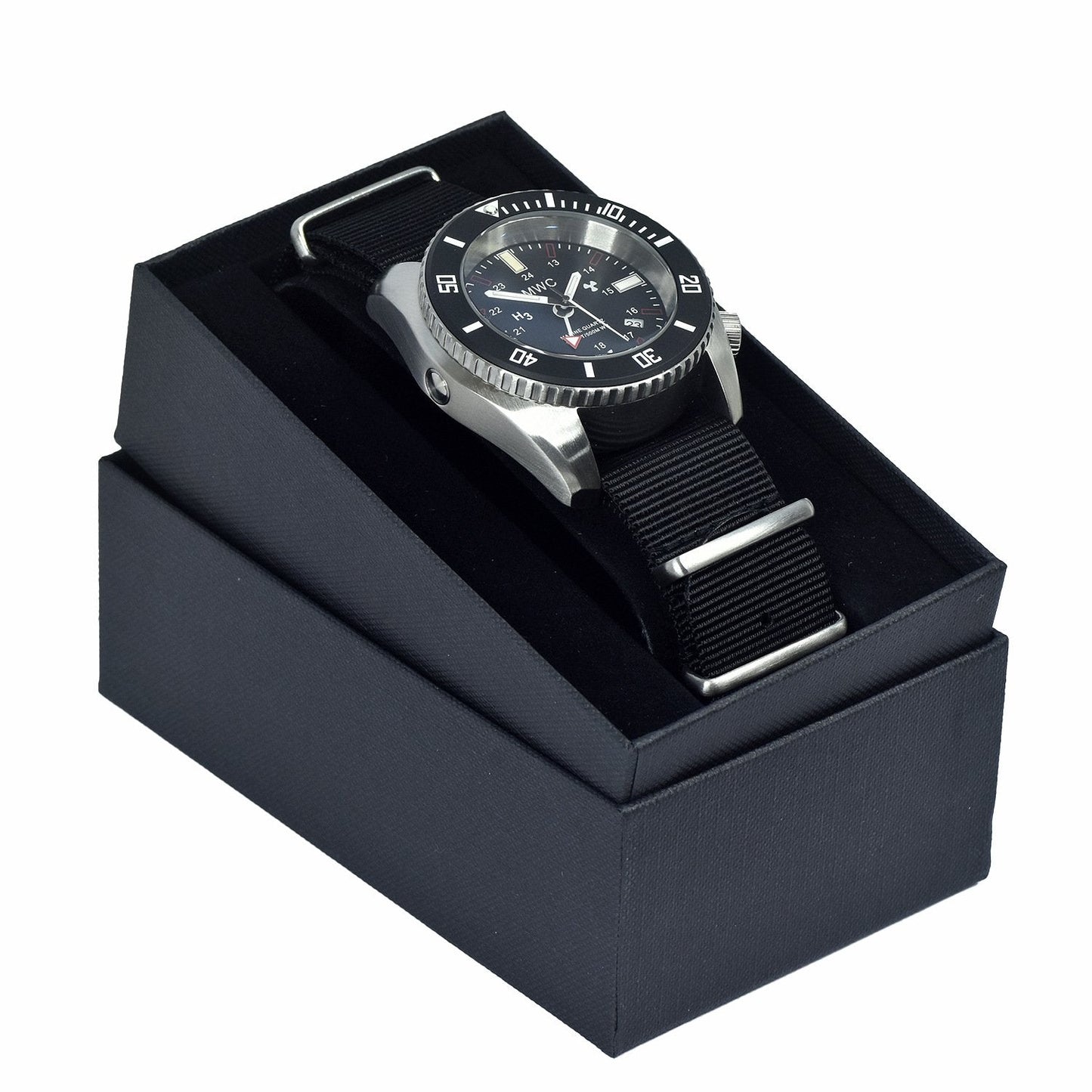
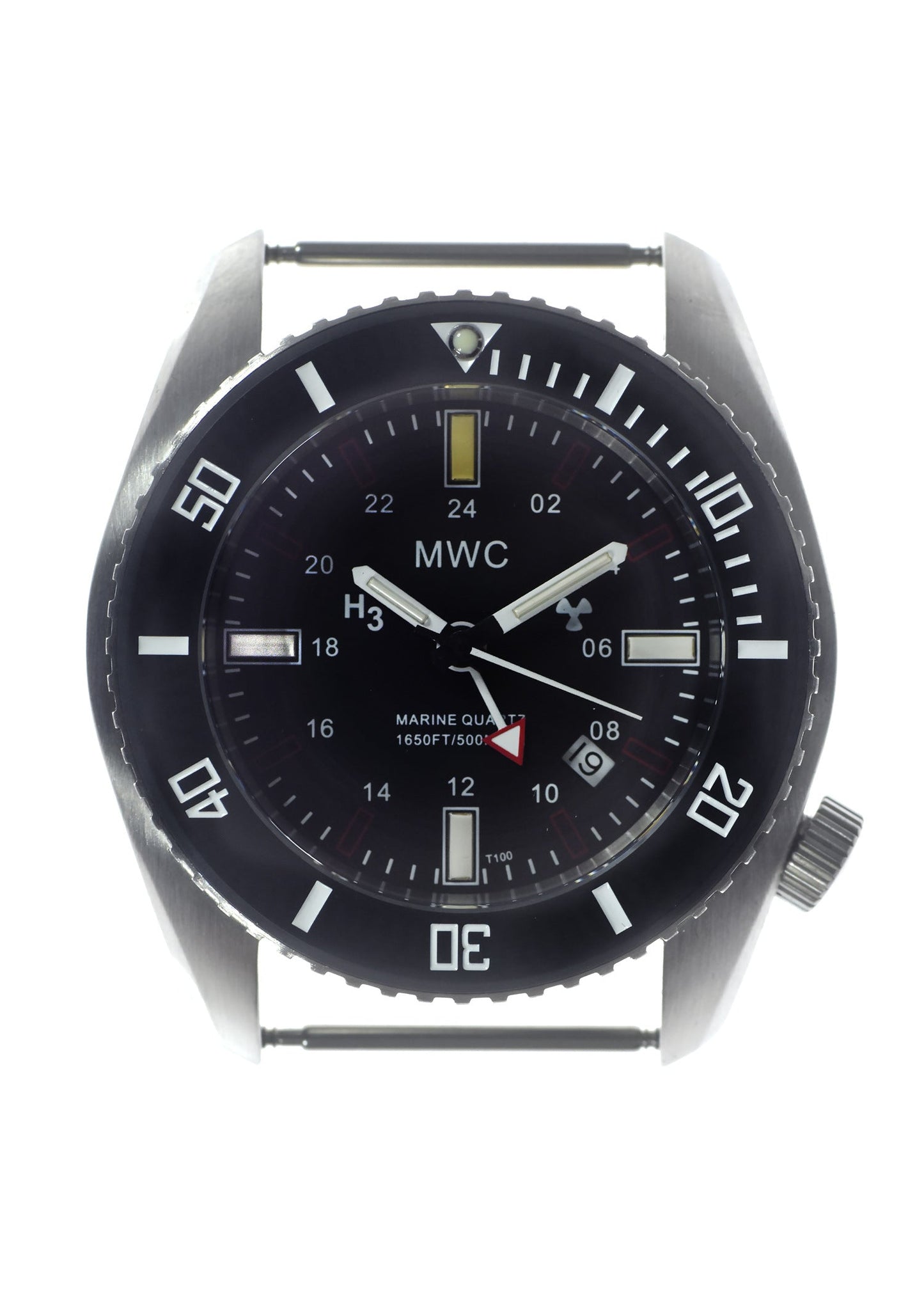
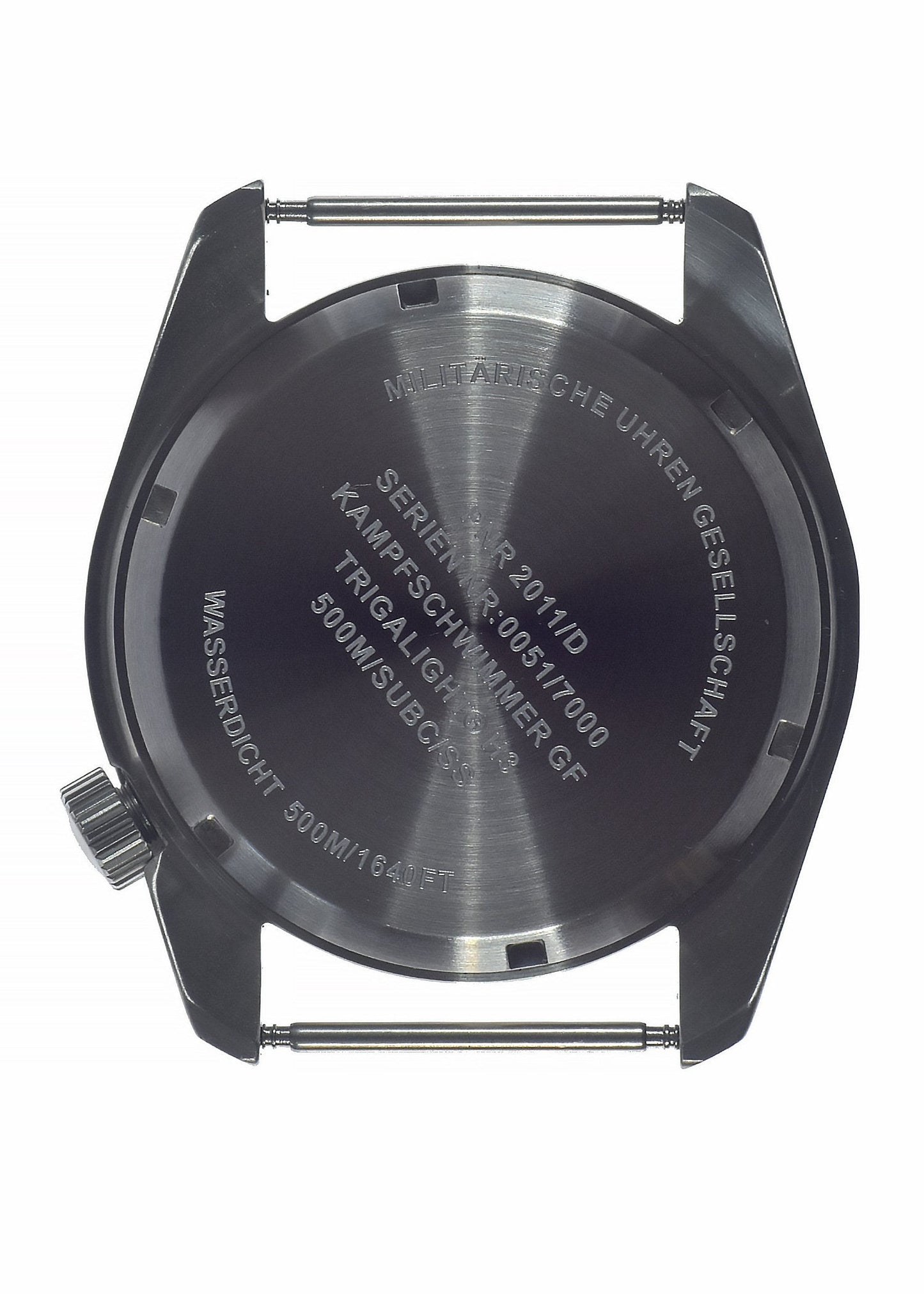
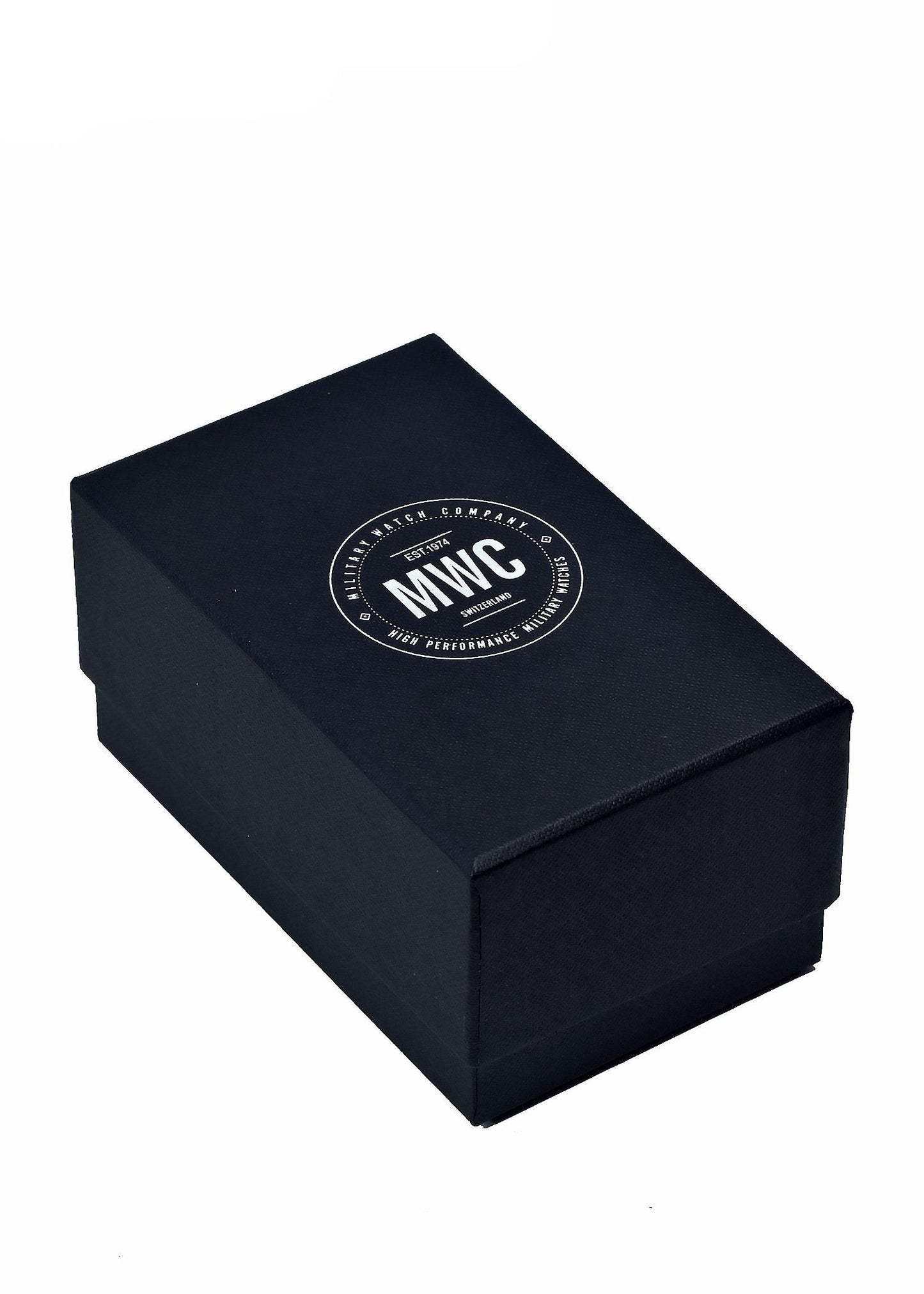
DESCRIPTION
SKU: 500M/SUBC/SS
The MWC "Naval Crew" range of Military Divers models are one of MWC's latest heavy-duty ranges, there are two models stainless steel finish the other in covert non-reflective PVD steel, the watches use red T100 tritium GTLS tubes which makes them superior to alternative watches because they can successfully preserve night vision on the bridge of a ship or in a submarine, submarines are normally 'rigged for red' to allow use of the periscope at night, dusk and dawn without interference from the bright light in the control room. When coming to periscope depth a submarine is at its most vulnerable to collision, and red light gives the operator additional time as his eyes do not need to adjust to night conditions. These watches were ordered by submarine crews specifically for this purpose.
Both of these models were designed to be robust and the shatter and scratch resistant sapphire crystal makes them significantly more durable than many other divers watches. These watches are both flexible and multipurpose enabling them to be deployed in a wide variety of different applications, for example they are suitable not just for use on board vessels but for deep diving with mixed gases and have a 500 m (1,650ft) water resistance rating, they also have a wide 24 mm strap and a non-scratch ceramic bezel specifically designed to be easy to grip in cold and icy conditions.
These watches are unique because not only do they have a very high water resistance rating, but they are also equipped with a high quality Ronda GMT 515.24H movement with a hacking function to enable synchronization, the concept behind GMT or dual time zone watches is very clever, not because they are in any way particularly complex but because the technology behind them is so incredibly simple. On a conventional watch the hour hand is designed to travel around the dial over a 12-hour period, all that is needed to create a GMT watch is to add a second independently adjustable hour hand which travels around the dial in 24 hours instead of the usual 12. Using the watch could not be easier because the 24-hour hand circles the dial once a day instead of twice with a normal hour hand, its tip indicates the corresponding hour and because it’s operating on the 24-hour timescale there can be no confusion between a.m. and p.m.
All MWC 500 m (1,650ft) models are fitted with a helium escape valve, people often ask us how helium gets into a dive watch in the first place and the answer is very simple, essentially a helium molecule is among the smallest of all molecules. What this means is because they are so small even though the seals are working fine to keep water out the helium molecules can still get through and enter the watch even though other gases and water cannot.
The main users professionally of watches with helium escape valves are saturation divers who spend long periods of time at great depth with high pressure, the result is that the helium molecules can build up inside the watch creating pressure inside the case, this can inflict serious damage to the watch and even blow out the crystal or crown when it’s unscrewed, this is potentially extremely dangerous if for example you are just checking or resetting the time, it can also potentially write off the watch. What the helium escape valve does is automatically allow the helium molecules to escape from the watch during decompression when the watch returns to normal standard sea level pressure. The valve is only one way, so it lets the helium out but prevents anything external getting in.
For anyone who does not know why the helium is an issue, it’s important to understand why helium is employed for deep diving. The reason is that helium is one of very few gasses which does not have negative effects such as we see with nitrogen which causes nitrogen narcosis, consequently helium is used to replace nitrogen in most deep-sea mixed gas diving applications.
In some situations, professional divers can operate at great depth for extended periods where they live in dry environments pressurised with an oxygen/helium mix. When the divers surface and decompress after days or even sometimes weeks this gas must be removed to prevent a problem as mentioned earlier such as the crystal or crown being blown out which can potentially injure or even blind someone.
The reality is that most divers will not be living in a pressurised environment for days or weeks on end, this means they will have no need for a watch equipped with a helium valve, regardless of how deep they dive but with deep dive watches such as these 500 m models, it's essential that the valve is there just in case it’s needed because the watch would not be fit for purpose without it.
* A lot of people ask us what are the benefits of sapphire crystal over a standard mineral crystal? The answer is that synthetic sapphire is by far the best material for watch crystals because it is very strong and also shatter and scratch-resistant, these characteristics make it very appealing to military and security personnel, police officers and people who lead active outdoor lifestyles, these groups account for over 70% of our customers. To get things into perspective we find that when clients have accidents with watches resulting in a cracked crystal over 90% are usually watches with mineral glass crystals, even factoring in that we use hardened mineral crystals they still do not come close to sapphire for durability under adverse conditions. The reason that sapphire crystals are so strong is that after the sapphire glass is manufactured it is also heat-treated to remove its internal stresses—which can cause weakness—it is then made into the watch crystals and two layers of anti-reflective coating are applied, interestingly sapphire crystal is now used on the latest iPhone. Of course, sapphire crystal comes at a price hence you find that it's normally only fitted to higher-end watches.

